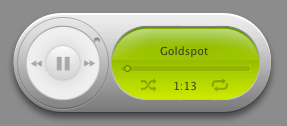Interfaces in Interfaces
Anyway, this is not a book review (or really even a recommendation, although I can report the first 45 pages are very interesting). Rather, I just wanted to share a quote (which I failed to paraphrase in a conversation this evening). I thought this was a great description of the role of the interface in 21st century culture:
Organic, low-tech metaphors once belonged to those lagging behind the machinic power curve, the Luddites and the antediluvians, the poets and the novelists, the ones reaching for older analogies because the shock of the new had so overwhelmed them. In today's society, the task of translation has migrated to the technicians. In the age of the graphic interface, with its visual metaphors of trash cans and desktop folders, imaginative flashbacks have become programming feats, conjured up by high-tech wizards hacking away in assembly language.Wow. I read that and realized what an amazing point it was. Rather than the users making the metaphors for the computer, the metaphors are being preprogrammed for them. To help people understand the vast intricacies of digital technology, interface designers are including everyday objects whose interaction users understand with little to no thought. We throw out the garbage when we're done. We close and open windows when necessary. We have a desktop on which sit important objects. Etc, etc, etc.
What's so interesting, though, is that as we become more accustomed to these digital devices the metaphors expand, often becoming only tenuously metaphorical. Both Windows and OS X now include a "toolbar" of sorts at the bottom of the screen. What exactly is a toolbar in real life? Yeah, a tool box exists, but that is an object that we store things in. How many people actually use a bar to store their most important tools on? (I've never heard of one except for this).
So with that in mind, what future metaphors might be in store? It's kind of fun to imagine a future where digital devices become metaphors inside interfaces for other digital devices. Take a look at this picture and tell me what it looks like:

If you answered an iPod, you were correct. That, little screenshot comes courtesy of the iTunes Dashboard widget. I wonder how many other examples of interfaces there are that include such obvious calls to other digital interfaces. (In case anyone was wondering how I spend my days, it's pondering these kind of questions.)